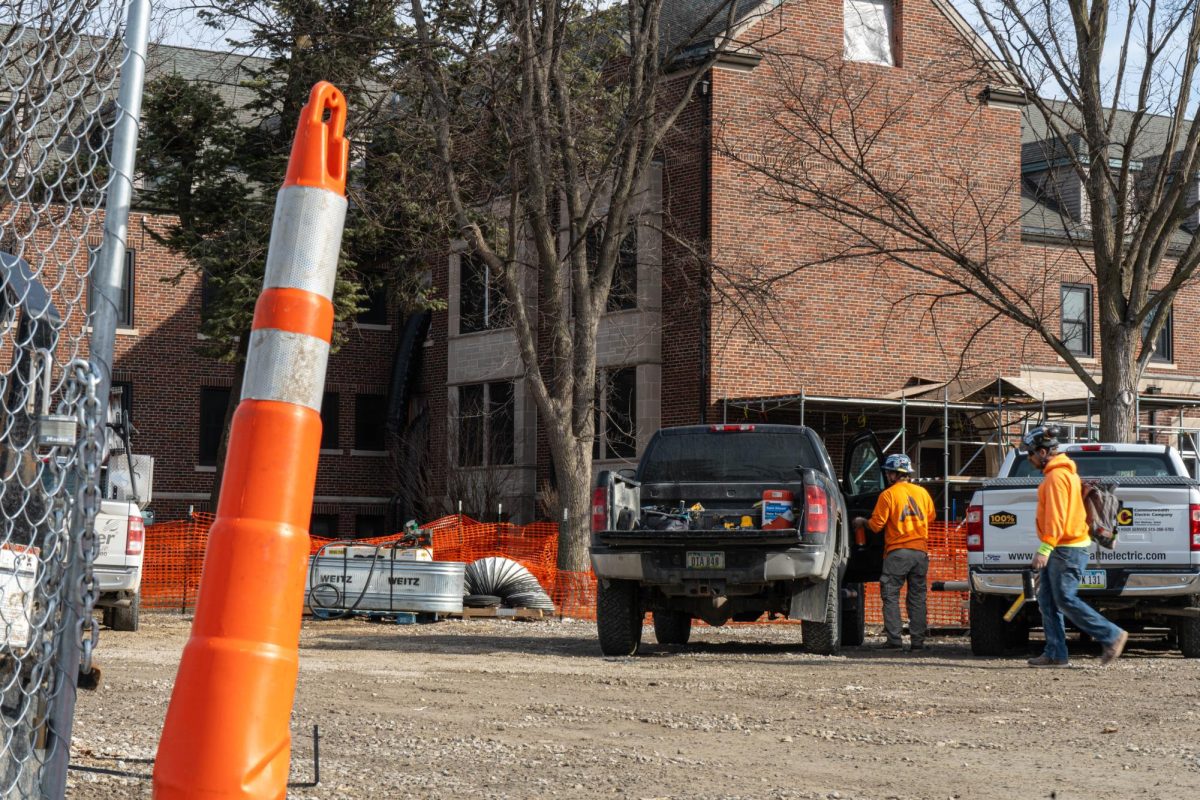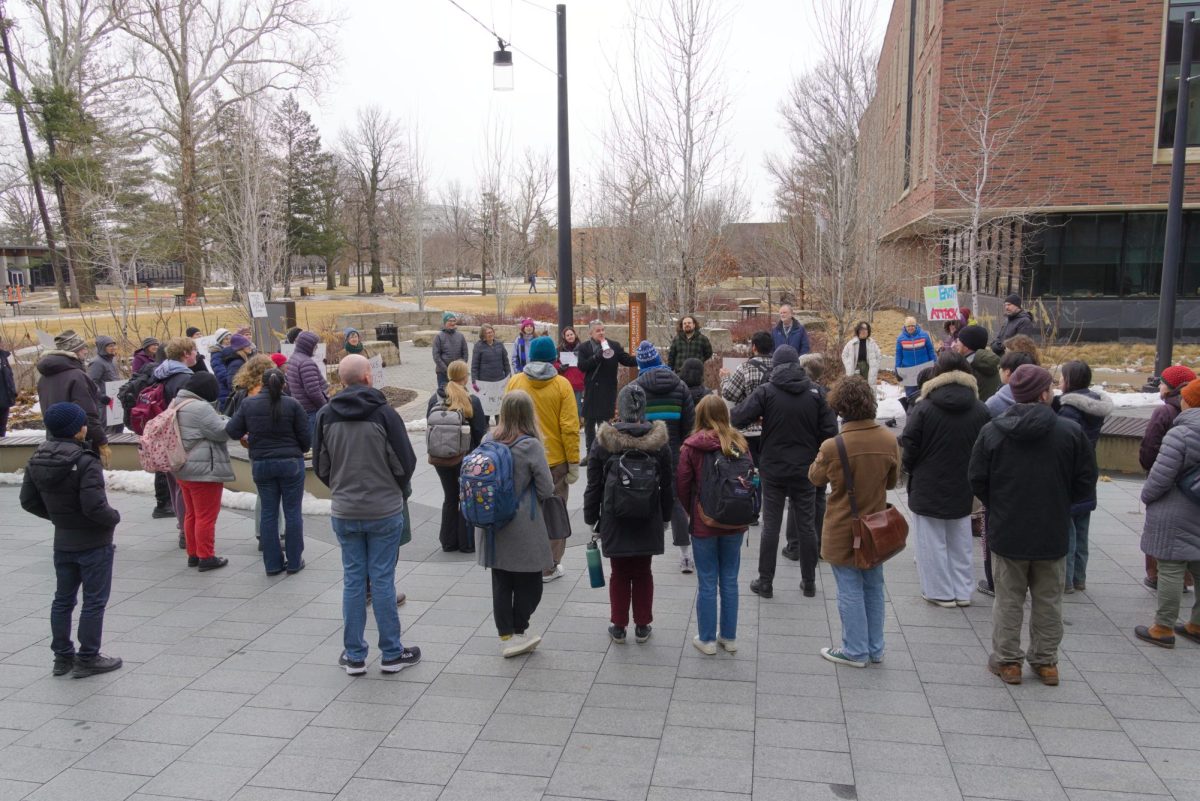Iowans overwhelmingly voted to pass a constitutional amendment barring non-citizens from voting. The change in legislation comes after Iowa’s Secretary of State flagged over 2,000 individuals as possible non-citizens registered to vote just two weeks before the general election.
Secretary of State Paul Pate announced the list on Oct. 22 after an audit of state voter registration records, singling out individuals who at any time in the past 20 years have reported to the Iowa Department of Transportation as non-citizens.
The amendment, which passed this Tuesday by a margin of 52.2 percent, changed Iowa’s constitutional language on voting from “every citizen” to “only a citizen” can vote amid Democratic Party and civil liberty organization opposition.
However, Iowa Democrats have raised concerns, saying the change is unnecessary and would inspire anti-immigrant sentiments. They also cited concerns that the measure would tie the hands of future lawmakers and prevent changes to state and local laws that could someday allow noncitizen voting.
In Iowa, non-citizen voting is a felony, but that is not the case everywhere. For example, a 2016 San Francisco law has allowed non-citizens, including undocumented immigrants, to vote in school board elections if they are the parents or legal guardians of children in the district.
Iowa’s amendment comes amidst an election climate marked by anti-immigrant rhetoric. Donald Trump, now 47th president-elect, has previously described immigrants as “rapists,” “bloodthirsty criminals” and “the most violent people on earth,” asserting that they are ruining the “fabric” of the country and its culture.
In Iowa, a former swing state that has been solidly Republican since Trump ran in 2016, anti-immigrant rhetoric has been on the rise too.
Civil liberty organizations have challenged Pate’s list for contributing to those sentiments ahead of a crucial election. The American Civil Liberties Union (ACLU) of Iowa sued Pate over his directions to challenge the voter registrations of flagged individuals on his list, filing the suit on behalf of the League of United Latin American Citizens (LULAC) and five naturalized citizens.
That lawsuit called the audit the “Secretary’s Voter Purge Program” and alleged that it “ensures that new citizens are targeted, challenged, and investigated for exercising their basic right of citizenship and participating in our democracy having recently sworn oaths of fidelity to the Constitution.”
In a statement to The S&B, Veronica Lorson Fowler, communications director for the ACLU of Iowa wrote that “every American citizen, regardless of background or ethnicity, has the right to vote, and we encourage all citizens to exercise that right.”
This comes as many individuals of multi-ethnic backgrounds have been singled out, including Orcun Selcuk, who has been a naturalized citizen since 2023 originally from Turkey. Selcuk is one of the five citizens included in the ACLU lawsuit.
According to an Oct. 31 ACLU press release, the records from the Iowa Department of Transportation (IDOT), on which the Secretary of State’s list of voters to challenge is based, are outdated.
Iowa GOP Chairman Jeff Kaufmann released an Oct. 31 statement in support of Pate and the restrictions, bashing ACLU’s lawsuit.
“The insincere hacks at the ACLU are filing this lawsuit just to squeeze a couple more dollars from their donors as Election Day nears,” he said. “This lawsuit is nowhere near ‘voter suppression’ as they outrageously claim. Previously self-identified non-citizens are still allowed to vote, the only thing that changes is the ballot type. More political theater from the Iowa ACLU, which should be a surprise to no one.”
On Nov. 3, a US District judge ruled that Iowa’s Secretary of State could continue to challenge the voter registrations of individuals flagged as potential non-citizens. In that decision, Judge Stephen Locher acknowledged that both sides agreed the list included citizens.
For example, Linn County Auditor Joel Miller said that his office has confirmed the citizenship of 134 of the 150 people on the list he was provided by Pate’s office.
Marshall County, northwest of Poweshiek County, is another one of Iowa’s 99 counties that received a list of individuals whose ballots were to be challenged if they attempted to vote and could not prove their citizenship on Election Day, according to a statement written to The S&B by Nan Benson, county auditor and recorder.
Benson further explained that individuals flagged would still have the option of casting provisional ballots, officially counted when their citizenship statuses can be verified. However, Benson said cases are still being processed, and confirmations are uncertain.
“We are directed [by] Secretary Pate, through the poll workers, to challenge those votes, to allow them to confirm their citizenship status, so that we can count their vote,” Poweshiek County’s county auditor Missy Eliander wrote to the S&B. Eilander did not provide information about how many individuals in Poweshiek County were included on the list.
On November 3, Pate published a press release statement in response to the court ruling and defending his decision to create the list ahead as a reason for defending Iowa’s election integrity.
“U.S. elections are for U.S. citizens, and ensuring only eligible voters participate in Iowa’s election process is essential to protecting the integrity of the vote,” wrote Pate.







